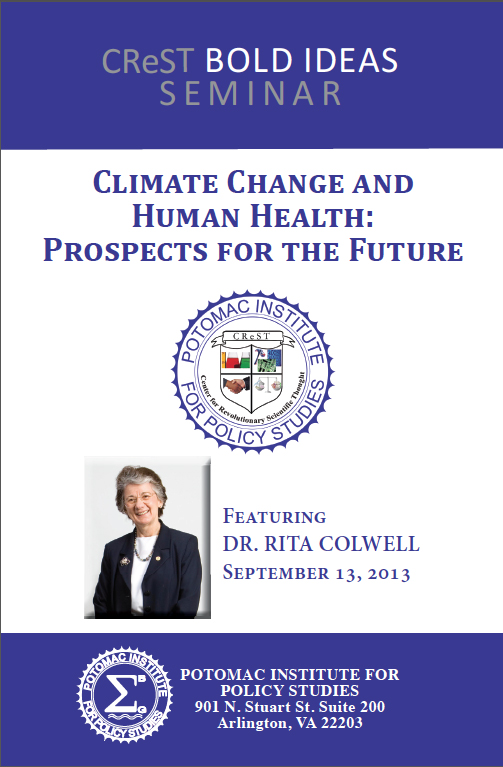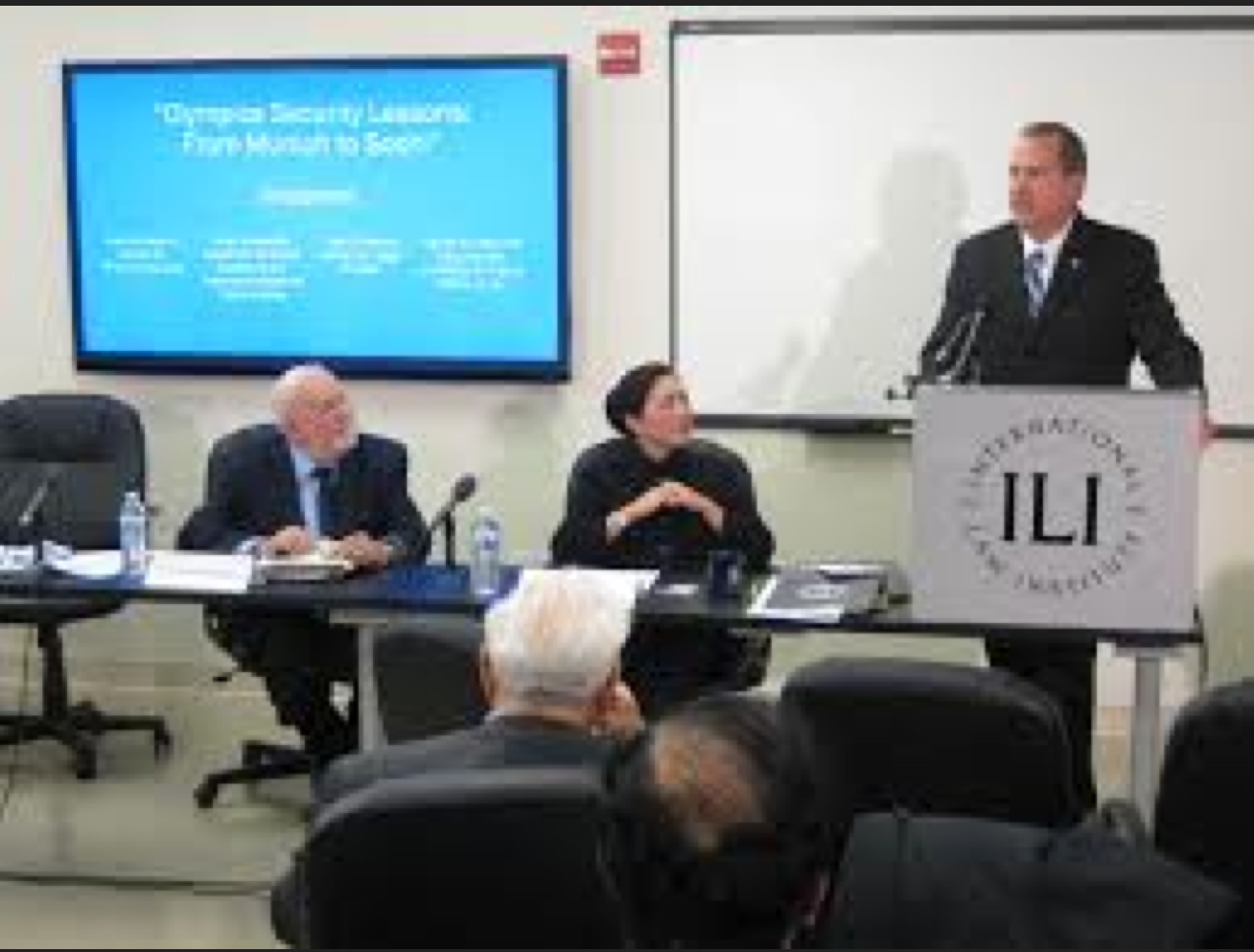Featured
Effort Now Should Be On Building Models To Predict Spread of Infectious Diseases
 The report from a recent seminar on "Climate Change and Human Health" is now available for download.
The report from a recent seminar on "Climate Change and Human Health" is now available for download.
Potomac Institute Board of Regents member Dr. Rita Colwell spoke about “Climate Change and Human Health: Prospects for the Future.” Studying infectious diseases and their causes, sources and spread can help build models to predict their spread, especially when factoring in ongoing climate change challenges.
Using cholera as an exemplar infectious disease, she considers the impact on human health in a world undergoing climate change. Cholera, which is caused by the bacteria Vibrio cholera, is found in many environments throughout the world, which leads to epidemics in areas with poverty, poor sanitation, and unsafe drinking water.
Read more: "Climate Change and Human Health" Seminar Report Now Available
Shana Dale, a Senior Fellow at the Potomac Institute and former Deputy Administrator of NASA, is a recognized senior executive and leader in aerospace policy and in homeland security, and has broad experience in national security. She also has extensive federal government knowledge and experience, in areas such as legislative process, White House policy and procedures, and agency operations.
This week she spoke to Potomac Institute researchers and interns as part of a mentoring series by the Institute to develop the next generation of leaders in S&T policy and national security.
Economic Development, Security, Governance and Engagment Are All Vital Elements of Stability
 Bringing stability to areas of conflict provides is challenging because of the many elements of power and diplomacy that are traditionally used. But BGen David Reist (USMC, Ret.) says combining economics with governance and engagement is the best solution.
Bringing stability to areas of conflict provides is challenging because of the many elements of power and diplomacy that are traditionally used. But BGen David Reist (USMC, Ret.) says combining economics with governance and engagement is the best solution.
BGen Reist asked an Iraqi Army general if he needed security for economic development, or economic development for security. The general’s response: “One hand alone cannot clap.” This reinforces that integrating all the elements of national power is the best path toward success, BGen Reist emphasized.
Read more: Stabilizing in Conflict: One Hand Alone Cannot Clap
Panel of Experts Draws on Military, Diplomatic, Academic, Legal and Research Experience to Explore Security Challenges at Olympics
 Security concerns at the Sochi Olympics are a just one facet of security issues globally, and the current events provide a valuable opportunity to discuss the challenges and potential for the way ahead.
Security concerns at the Sochi Olympics are a just one facet of security issues globally, and the current events provide a valuable opportunity to discuss the challenges and potential for the way ahead.
The Potomac Institute co-sponsored an event at the International Law Institute Feb. 20 titled “Olympics Security Lessons: From Munich to Sochi” to look at the many security challenges, including cyber and physical, as well as the legal framework through which to view the challenges.
Kim Phan, ILI Executive Director, opened the discussion by reminding the audience that geopolitical issues and terrorism continue regardless of events like Olympics, and that venues attracting world attention are favored by terrorist groups.
Prof. Yonah Alexander focused on two Olympics – 1972 in Munich and 1980 in Moscow – as examples of political issues and terrorism impacting international sporting events. He also cited the current events in Ukraine as a different kind of brutalization that deserves attention now. Prof. Alexander is Director, Inter-University Center for Terrorism Studies, and Senior Fellow, Potomac Institute for Policy Studies.
Read more: Olympic Security Challenges: Physical, Cyber, Legal and More
Meeting with Scientists, Engineers and Officers Who Design Equipment Highlights Areas to Improve Greater Mobility
Collaboration is key to identifying and aligning requirements and technology, and The Potomac Institute for Policy Studies is taking that next step in helping DoD’s Rapid Reaction Technology Office Innovation Program in Army-specific areas.
Potomac Institute representatives, in support of RRTO, met with U.S. Army Research, Development, and Engineering Command (RDECOM) staff and others Feb. 5 and 6 to discuss the soldier and small unit operational energy needs of Communications-Electronics Research, Development and Engineering Center (CERDEC), Natick and the military S&T community.
Read more: Institute Helps Focus on Warfighting Effectiveness
